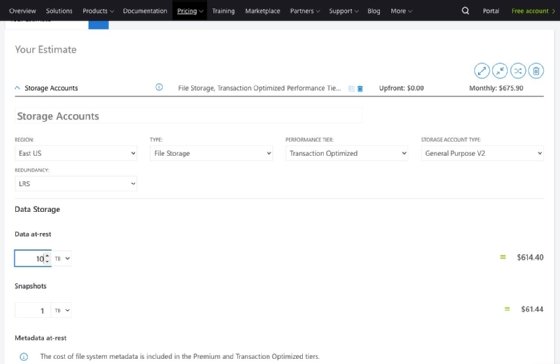How to choose between Azure Files vs. an on-prem file server
Azure Files pricing and setup vs. a Windows file server
The setup for Azure Files varies depending on the authentication route, but it’s a fairly straightforward process to import that is easier with some help from PowerShell. For large amounts of data, you can bulk ship the files on disk drives with the Azure Import/Export service, which costs $80 per storage device.
How you arrange the file system and structure will depend on how you plan to use it. Azure Files uses a Windows file system structure, which is the same as on-premises Windows file server. With the cloud, getting the data into the platform is rarely the issue; it’s getting the data out that tends to be the concern.
Find the latest tips related to disk administration, file shares and other storage technology from Microsoft.
Generate a Windows file server audit via PowerShell
Using Diskpart to create, extend or delete a disk partition
Azure File Sync service puts pep in hybrid storage setups
Build a Windows Server 2019 file server cluster for stability
Optimize Windows Server 2019 with file server best practices
Depending on how much you store, how much you transfer and several other factors, your charge for Azure Files will vary. While transactions for reads or writes are in the $0.015 neighborhood, and other features even lower, the costs can add up. For large organizations, a charge of $100 or even $200 will not be an issue, but these are monthly charges. The cost will likely increase, because it’s rare for file usage to drop over time.
Another factor that adds to the monthly cost of Azure Files is what Microsoft charges for data storage in its cloud. The storage tiers in Azure Files range from premium, transaction-optimized, hot and cool. The monthly cost for 10 TB could be $500 to almost $1,800 a month depending on needed performance. That can add up to $6,000 to $21,000 a year. Microsoft provides a calculator for Azure Files to help you estimate your costs.

From a fixed-cost aspect, it’s hard to beat an on-premises Windows file server. They can easily last for five to eight years. A typical SSD-based 10 TB physical file server runs between $7,000 and $10,000, but the costs get difficult to pin down when you add in the Windows Server licensing, maintenance, additional software, auditing and what it costs for the IT team to support the server.
